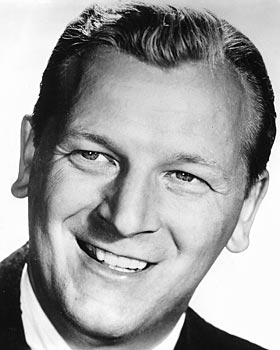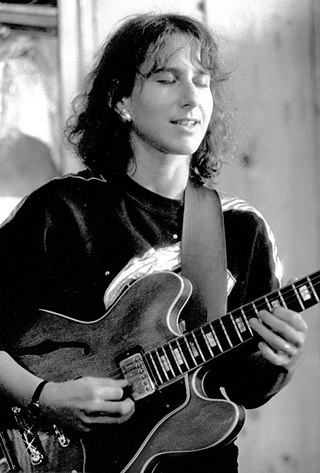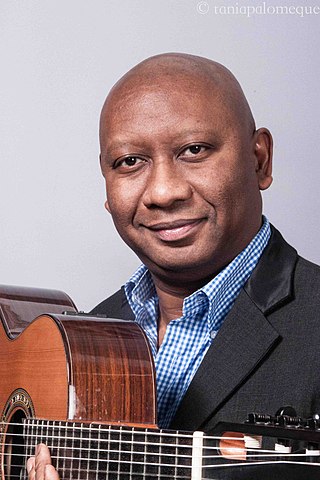
Stanley Clarke is an American bassist, composer and founding member of Return to Forever, one of the first jazz fusion bands. Clarke gave the bass guitar a prominence it lacked in jazz-related music. He is the first jazz-fusion bassist to headline tours, sell out shows worldwide and have recordings reach gold status.

William Otis Laswell is an American bass guitarist, record producer, and record label owner. He has been involved in thousands of recordings with many collaborators from all over the world. His music draws from funk, world music, jazz, dub, and ambient styles.

Patrick Bruce Metheny is an American jazz guitarist and composer.

Leslie Thompson Baxter was an American musician, composer and conductor. After working as an arranger and composer for swing bands, he developed his own style of easy listening music, known as exotica and scored over 250 radio, television and motion pictures numbers.
Exotica is a musical genre, named after the 1957 Martin Denny album of the same name that was popular during the 1950s to mid-1960s with Americans who came of age during World War II. The term was coined by Simon "Si" Waronker, Liberty Records co-founder and board chairman. The musical colloquialism exotica means tropical ersatz, the non-native, pseudo experience of insular Oceania, Southeast Asia, Hawaii, the Amazon basin, the Andes, the Caribbean and tribal Africa. Denny described the musical style as "a combination of the South Pacific and the Orient...what a lot of people imagined the islands to be like...it's pure fantasy though." While the South Seas forms the core region, exotica reflects the "musical impressions" of every place from standard travel destinations to the mythical "shangri-las" dreamt of by armchair safari-ers.

James Oscar Smith was an American jazz musician who helped popularize the Hammond B-3 organ, creating a link between jazz and 1960s soul music.

Raymond Matthews Brown was an American jazz double bassist, known for his extensive work with Oscar Peterson and Ella Fitzgerald. He was also a founding member of the group that would later develop into the Modern Jazz Quartet.

Emily Remler was an American jazz guitarist, active from the late 1970s until her death in 1990.
Melvin Rhyne, was a jazz organist best known for his work with Wes Montgomery.

John Michael Glyn Etheridge is an English jazz fusion guitarist, composer, bandleader and educator known for his eclecticism and broad range of associations in jazz, classical, and contemporary music. He is best known for his work with Soft Machine from 1975 to 1978, 1984 and 2004 to present.

The Tony Williams Lifetime was a jazz fusion group led by drummer Tony Williams. The band was pivotal in the development of fusion and featured various noteworthy jazz and rock musicians throughout its history, including guitarists John McLaughlin and Allan Holdsworth, keyboardists Larry Young and Alan Pasqua, and bassists Jack Bruce and Ron Carter.

Hank Van Sickle is an electric and upright bassist, best known for the blues rock band John Mayall and the Bluesbreakers. He is currently living in Southern California.

An organ trio is a form of jazz ensemble consisting of three musicians; a Hammond organ player, a drummer, and either a jazz guitarist or a saxophone player. In some cases the saxophonist will join a trio which consists of an organist, guitarist, and drummer, making it a quartet. Organ trios were a popular type of jazz ensemble for club and bar settings in the 1950s and 1960s, performing a blues-based style of jazz that incorporated elements of R&B. The organ trio format was characterized by long improvised solos and an exploration of different musical "moods".

James Harrell McGriff was an American hard bop and soul-jazz organist and organ trio bandleader.
Robert Jackson Drasnin was an American composer and clarinet player.

Joe Krown is an American keyboardist, based in New Orleans, Louisiana. Apart from being a solo artist, he is the full time member of Kenny Wayne Shepherd band. He plays New Orleans styled piano and also Hammond B3 organ.

"In Your Own Sweet Way" is a 1955 jazz standard, and one of the most famous compositions by Dave Brubeck. It was written around 1952, but its copyright notice was dated 1955. Brubeck's wife Iola, for whom the song was written, later wrote a lyric for the song, which led to singers such as Carmen McRae recording it. "In Your Own Sweet Way" was first released on Brubeck's 1956 studio album Brubeck Plays Brubeck; an earlier live recording is known.

Ron Jackson is an American jazz guitarist, composer, arranger, and instructor.

Bacchus Archives is a record label that has often released previous unreleased recordings. Some of the recordings it has released, includes recordings by artists such as The Controllers, Evan "Funk" Davies, The Dils, Peter Miller and Bob Thompson. It is also sublabel of Dionysus Records.

Eddie Lee McFadden was a jazz guitarist. He played in Philadelphia clubs from the 1950s and was in organist Jimmy Smith's band for several recordings in 1957–58. He then recorded several albums with another organist – Johnny "Hammond" Smith – during the period 1960–63, and one more in 1966. McFadden made two further sideman appearances on albums in the late 1970s.

















